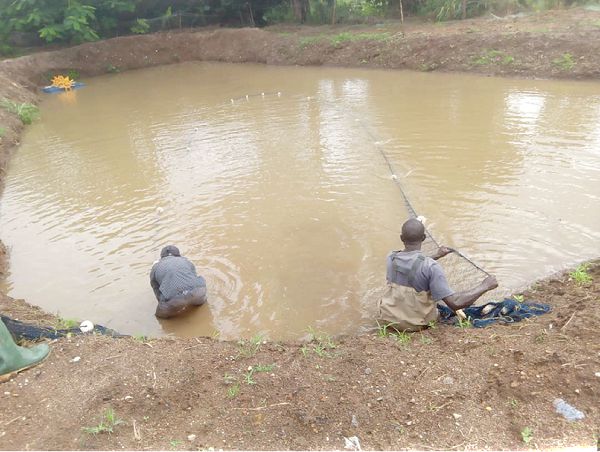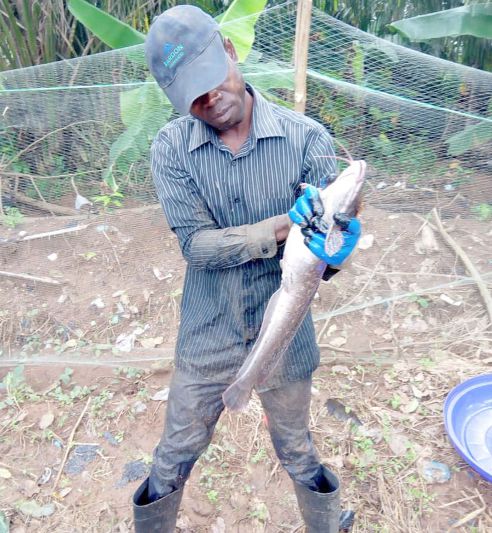
KMA’s £400,000 prize stirs hope in sanitation drive
The Kumasi Metropolitan Assembly (KMA) has in the past received the flak for superintending over a city engulfed in filth.
But the assembly is now receiving all the compliments after turning on the tide to win the coveted £400,000 prize for the Sanitation Challenge Ghana on Thursday, July 21, t2019.
The Sanitation Challenge for Ghana, which was driven by the Ministry of Sanitation and Water Resources, was a contest launched in 2015 to encourage Metropolitan, Municipal and District Assemblies (MMDAs) to put premium on sanitation issues.
Funded by the DFID-UK and the Bill Gates Foundation, it was to promote competition among the MMDAs to partner with their citizens, innovators and solvers, as well as academic institutions, among others to improve liquid waste conditions in urban areas.
After four years of rigorous processes, the KMA emerged winners beating the Effutu Municipal Assembly and the Sekondi/Takoradi Metropolitan Assembly which emerged the first and second in the Metropolitan and Municipal Assembly Category.
For the KMA, it was glory well-achieved.
Utilisation
The KMA has said that it will use the £400,000 prize to deepen the management of liquid waste in the city.
The Deputy Director of Waste Management for the KMA, Mr Ossei Assibey Bonsu, said in an interview that the assembly would continue the rehabilitation of a pond at the Oti landfill to improve delivery.
It will also construct institutional latrines for schools and intensify awareness creation of the construction and maintenance of household toilets.
“In doing that, we want to achieve an open defecation-free Kumasi,” he said.
How it happened
In Kumasi, 47.9 per cent of households patronise public toilets while 2.4 per cent practise open defecation.
These are challenges which the KMA is determined to reverse.
With the Sanitation Challenge Ghana covering the liquid waste value chain, the KMA started off from the communities, where the assembly invested in behavioural change and the provision of institutional and household toilets.
At Moshie Zongo, for instance, a household toilet project was introduced and was largely embraced by the people.
With the desire to promote the use of household toilets, the assembly signed an agreement with Clean Team, a social enterprise under the Water and Sanitation for Urban Poor programme to provide movable toilets called the Uniloo to households.
These are portable toilets which the subscriber can move to another house. It is also an odour suppression system.
The company was given a transfer point at Ash Town in Kumasi to where it transported the material collected from the households two times in a week before the faecal matter was sent to the Oti landfill site which is the property of KMA.
The technology includes a mixture of sawdust and nim powder, which keep the toilet dry and odourless.
Emptying and disposal
From containment, the next step the assembly took was how to empty and dispose of liquid waste.
As part of the move, drivers of waste disposal trucks were trained on how to properly dispose of the waste.
There was also the rehabilitation of the Oti liquid waste treatment pond to avert discharging untreated effluent directly into the environment.
The expansion of Kumasi continues to bring pressure on the Oti landfill, especially as other nearby assemblies also use the facility.
Mr Bonsu said the KMA used its internally generated funds to rehabilitate the landfill.
At Chirapatre, a suburb of Kumasi, the KMA had a sewerage treatment plant that was run down as a result of factors including non-payment by users.
It was emanating stench to the nearby communities and became a breeding ground for snakes.
Consequently, the KMA entered into an agreement with Trimac Aquaculture to use that facility to rear catfish.
This was after the assembly signed an agreement with the Regional Water and Environmental Services at the Kwame Nkrumah University of Science and Technology (KNUST) to undertake feasibility on the catfish project which realised the potential in the business.
Now the project is a huge success.
Measures taken to sustain the achievements realised included enhancing access to improved reliable environmental sanitation services, monitoring and evaluating implementation of sanitation plan and development of infrastructure and human settlement.
Future
Commenting on the achievement, the Metropolitan Chief Executive (MCE) of Kumasi, Mr Osei Assibey Antwi, said the KMA was inspired to do more to ensure that sanitation was further improved in Kumasi.
Some development experts have suggested that the government should increase its financial support to the KMA to enable it to do more in its development drive.